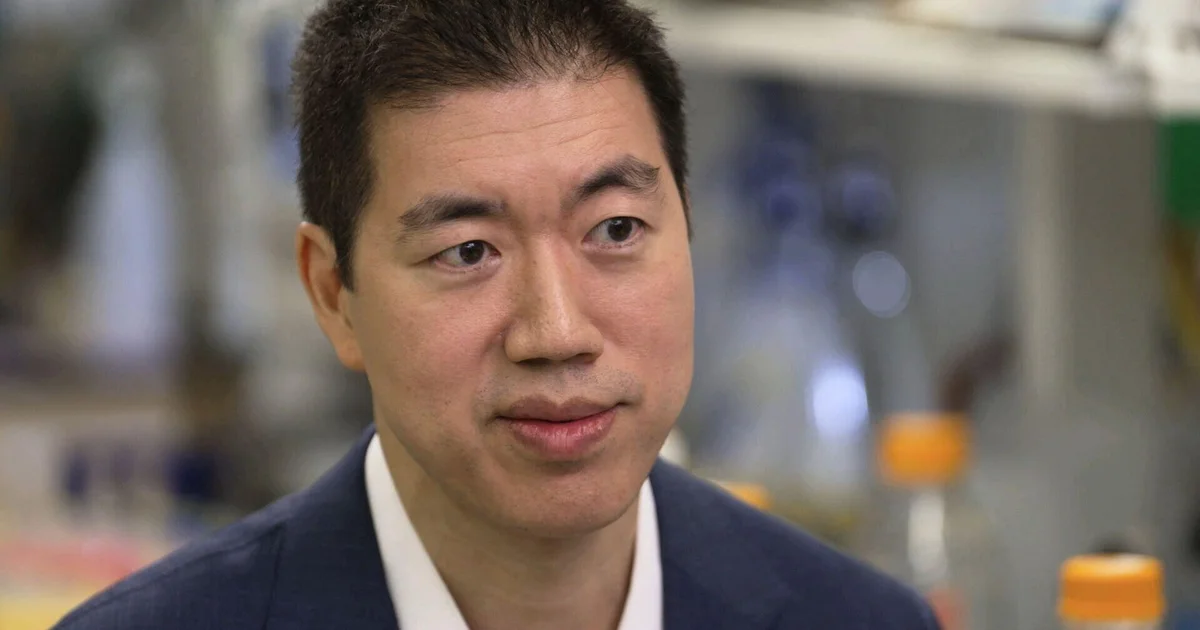Copyright CBS News

Alyssa Tapley was 13 when doctors told her she was going to die. She was diagnosed with a rare form of leukemia and had endured a year of failed treatments, including chemotherapy and a bone marrow transplant, when her doctors said they had run out of options. They were talking about end-of-life care when Tapley begged them not to give up on her. One of her doctors read about research into gene editing being done by Harvard professor David Liu, and thought it may help the teen. Tapley, now 16, was the first human to try the experimental treatment, made possible by U.S. federal funding. She's now cancer-free. "It's astounding what research can do and what people can do with the resources that they're given," Tapley said. For generations, federal research funding to universities has powered breakthroughs in medicine, technology and national defense. Now, the White House is pressuring universities to align with President Trump's political agenda or risk losing federal funding. Why funding to university researchers is being targeted The government has used the power of the purse before to shape higher education, but Mr. Trump's effort is unprecedented in scale. He's accused universities of antisemitism and liberal bias and demanded colleges do more to safeguard conservative voices. Accusations of antisemitism at Harvard stem from student protests over the Gaza war, which were often hostile toward Israel. Harvard tightened rules around protests and commissioned reports on antisemitism and Islamophobia. A survey on campus found that 40% of Jewish staff, faculty and students who responded said they felt discriminated against because of their views; 71% of Muslim respondents said the same. Mr. Trump has focused on antisemitism at Harvard. He's also called for dismantling diversity, equity and inclusion initiatives and for audits on hiring, admissions and academic programs. Harvard psychology professor Steven Pinker, who's been a member of the faculty for 22 years, has been outspoken about what he says is liberal bias on campus. "I think there have been too many incidents in which someone has expressed a controversial opinion and has been shamed or canceled," Pinker said. He points to biology lecturer Carole Hooven, who says she felt ostracized on campus after her 2021 remarks on Fox News about biological sexes sparked controversy. She has said the criticism and pushback on campus drove her to resign. Mr. Trump has described Harvard as a "liberal mess," and accused it of hiring almost exclusively "woke" people on the "radical left." Pinker said he feels there's "a grain of truth" in what the president has said, and that there should be more voices on the right at Harvard, but Pinker said he doesn't want Mr. Trump to have a say in who those people are or how many there should be. The Trump administration in April froze more than $2 billion in grants, mostly for scientific and medical research, after Harvard refused federal oversight. "The attack on universities is a tragic blunder," Pinker said. "Universities' research makes life better, massively so. Why would you want to cripple it? It's something that the United States does really, really well." What researchers say funding cuts mean for innovation The instability of federal funding has made it difficult for Harvard chemist and molecular biologist David Liu — the man behind the research that saved Tapley — to retain and attract researchers, Liu said. He and his team invented gene editing tools that can correct and rewrite defective genes. The technology could one day help hundreds of millions worldwide with genetic diseases like sickle cell and muscular dystrophy. Cancer researcher Joan Brugge, director of the Ludwig Center at Harvard Medical School, has for 50 years applied for and won competitive federal grants that helped uncover how tumors form and resist treatment and discovered innovative therapies. When her million dollar annual funding was terminated last spring, she was leading a team that had identified the earliest precursors of breast cancer. "My research has the potential to prevent their daughters, and their wives, and their cousins from developing breast cancer, and I don't think any taxpayer would want to interfere with progress on a project like that," Brugge said. The news that her two grants from the National Institutes of Health had been terminated was like a gut punch, she said. "My knees buckled, and I had to sit down, because I just never imagined that research focused on a disease like cancer would be canceled for a reason that was unrelated to the quality of the research or the progress of the research," she said. "But this was across the board for issues relating to diversity and antisemitism at Harvard." Brugge said she now spends most of her time "ringing doorbells" in a search for alternate funding. Bioengineer Don Ingber, founding director of the Wyss Institute at Harvard, said the situation on campus over the war in Gaza had gotten out of hand. But he said that universities including Harvard had made improvements. He relies largely on federal funding for his work identifying new therapies using what he calls "organs-on-chips," breakthrough technology that can replace animal testing. Ingber emphasized that the money universities get for research is crucial. "The money that's given to the university for scientific research and medical research is not just given. We have to compete for it. And we are doing a service for the United States because they've identified needs that need to be met," he said. Federal grants have made up almost half the university's research funding. Ingber and other scientists said government support of university research, now under threat, is what has powered America's scientific supremacy in the world. "We are truly putting the brakes on scientific innovation in this country at a time where our ostensible adversary, China, is just going faster and faster and faster," Ingber said. What's next in the funding fight Some universities have cut deals to protect their funding. But Harvard, the president's most prominent target, has refused, citing academic freedom. Harvard sued the government this past April to regain its funding. In September, a federal judge sided with Harvard and ruled the funding freeze unlawful, saying the Trump administration "used antisemitism as a smokescreen for a targeted, ideologically-motivated assault." The judge ordered all the money restored. The Trump administration has vowed to appeal the judge's ruling and block Harvard from receiving future grants. Harvard and the federal government have been in settlement talks for months and in a statement, the Department of Education said the Trump administration is "actively working toward a deal with Harvard that holds them accountable for egregious civil rights violations and discrimination on campus while restoring generous taxpayer dollar support to the institution." Harvard, in turn, says it's working to improve existing programs promoting ideological diversity. Funds have started to flow again, but researchers say much damage has been done. "There's now this existential threat that this could happen again," Brugge said.



